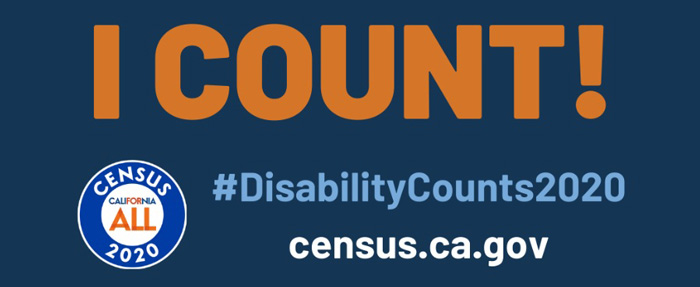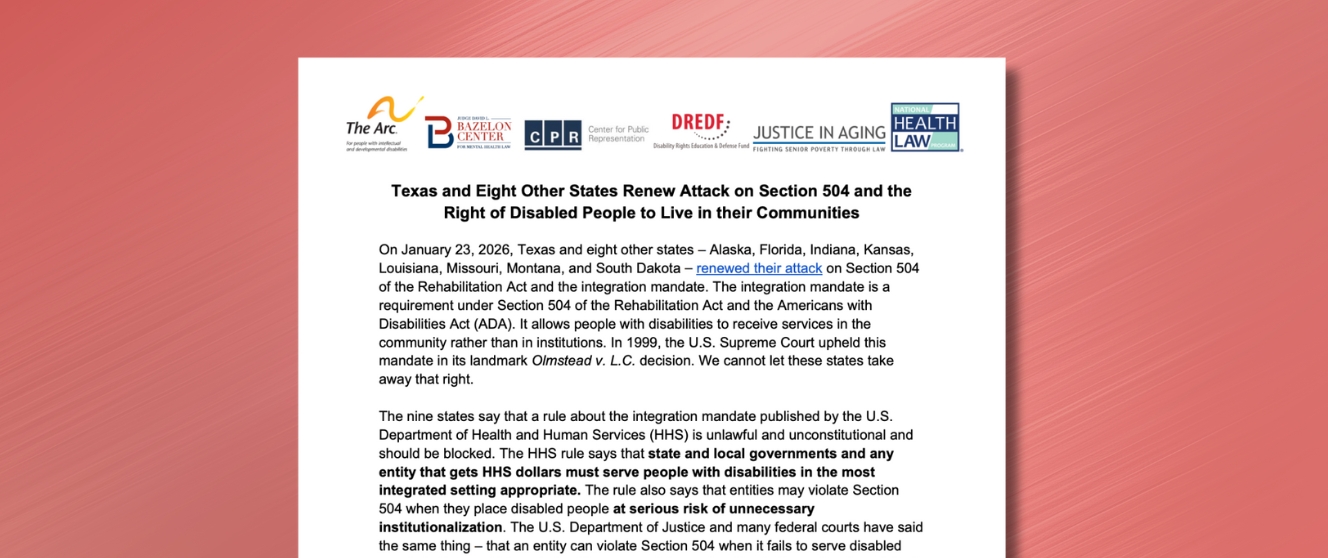
This page is being preserved for historical record and future reference, even though it may no longer be actively used or up to date.
Disability Rights Education & Defense Fund (DREDF) & California Foundation for Independent Living Centers (CFILC) Launch New Website, Produce Public Awareness Videos as Part of Statewide Outreach Campaign

FOR IMMEDIATE RELEASE:
Monday, February 10, 2020
MEDIA CONTACTS:
Lawrence Carter-Long, 510-644-2555 x 5256, LCarterLong@dredf.org
Director of Communications, Disability Rights Education & Defense Fund (DREDF)
Kyla Aquino Irving, 916-325-1690, Kyla@cfilc.org
Communications and Marketing Director, California Foundation for Independent Living Centers (CFILC)
BERKELEY/SACRAMENTO – The California Foundation for Independent Living Centers (CFILC) and the Disability Rights Education and Defense Fund (DREDF) are acting as Statewide Community-Based Organization Outreach Partners in coordination with the California Census Office to increase participation among disabled Californians and older adults in the upcoming 2020 census which takes place April 1.
In addition, a series of nine videos available in English, Spanish and American Sign Language (ASL) were produced for the campaign in partnership with the Seattle-based disability media organization, Rooted in Rights. The videos can be used by community groups, disability organizations and advocacy groups in California and across the nation. Members of the media and the general public can access campaign resources and watch or share the videos at DisabilityCounts2020.org. A list of participating Independent Living Centers across California can be found here.
“We’ve discovered that there’s a lot of fear and misinformation about the census among people with disabilities,” said Susan Henderson, Executive Director of DREDF. “We’re here to ease those concerns and to assist census takers across the state by providing accurate, up-to-date information and remind our communities that only thing people with disabilities should fear about taking the census is what we stand to lose – individually and collectively – by not taking the census.”
The disability and aging communities have a lot to lose.
Real-life necessities many people with disabilities and older adults rely to live independently like health care service, SNAP benefits, and special education funding are determined by the census count. If disabled residents are missed or undercounted in the census that means fewer resources will be allocated by Congress to adequately fund those services.
“If disabled people aren’t counted in the Census that means less attention—and funding—to our issues when it comes to budget allocations,” added Christina Mills, CFILC Executive Director. “Thankfully, in 2020, for the first time census takers will be able to complete the 2020 survey in person, online or by phone, in addition to the traditional paper questionnaire. This promises to improve and increase access for everyone – people with disabilities and older adults included.”
For more information, go to: DisabilityCounts2020.org

